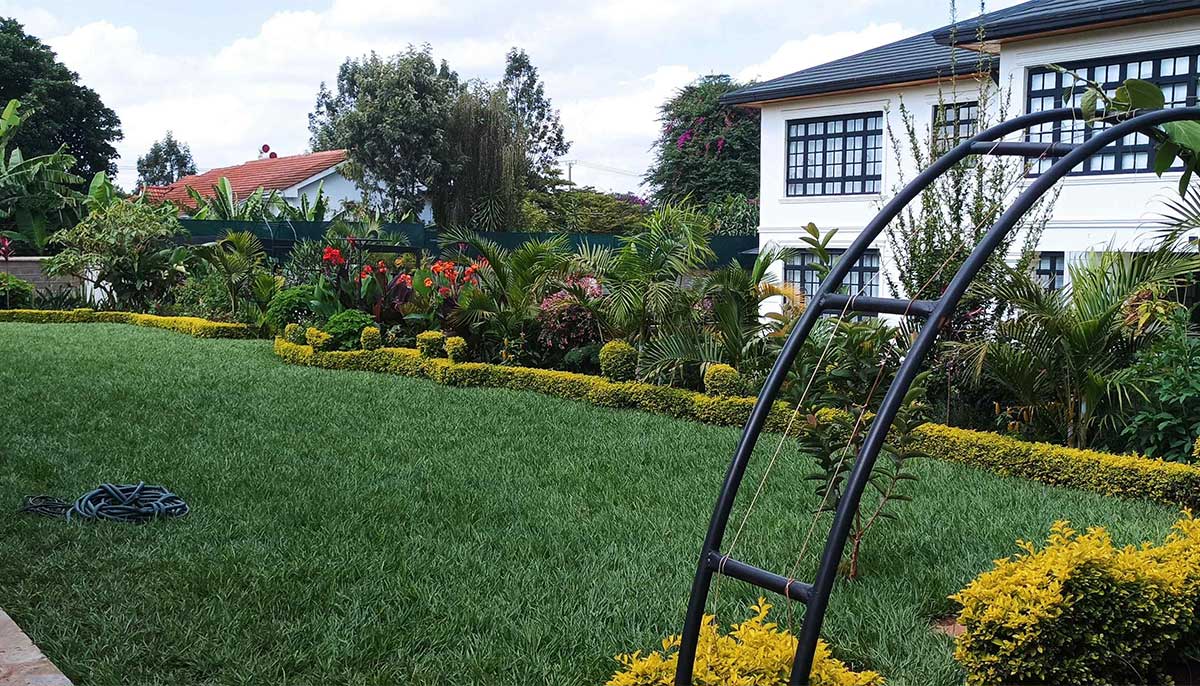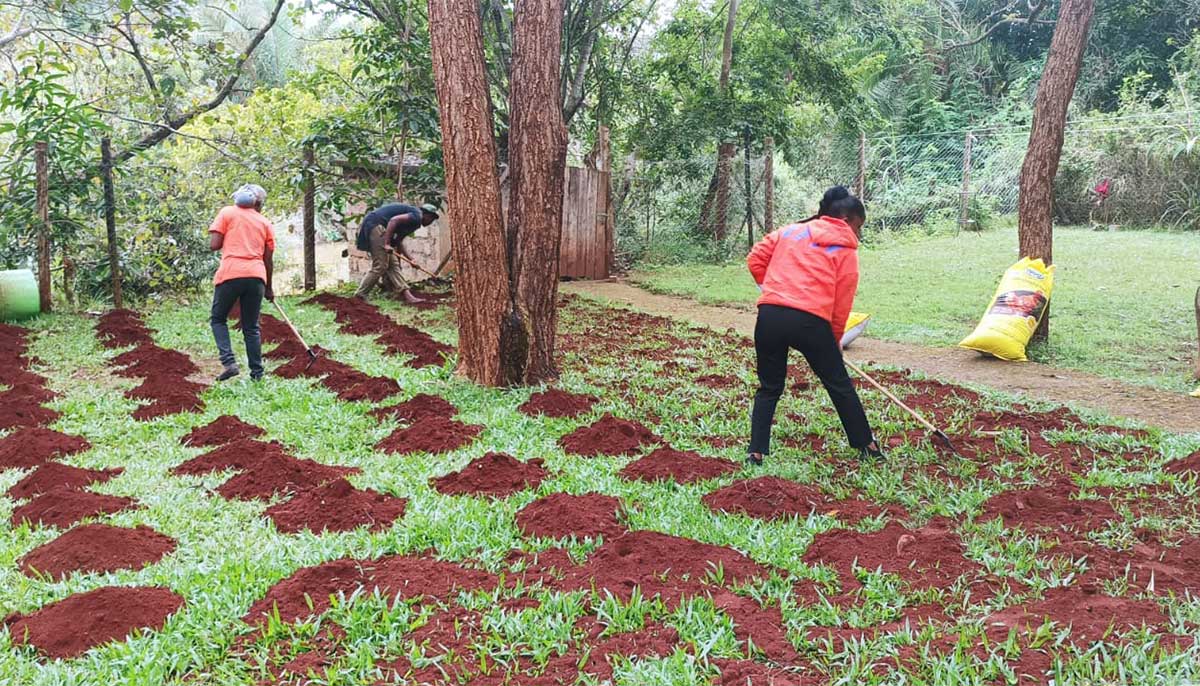Aeration is a vital practice in maintaining a healthy and vibrant lawn in Kenya. By aerating your lawn, you can enhance its overall health, promote root development, and improve the absorption of essential nutrients and water.
This article explores the numerous benefits of lawn aeration in Kenya and highlights why it should be an integral part of your lawn care routine.
Enhanced Nutrient Absorption
In Kenya, where soil conditions can vary, proper nutrient absorption is crucial for maintaining a healthy lawn. Aeration helps break up compacted soil, allowing nutrients to penetrate deeper into the root zone. This promotes healthy root growth and enables the grass to access vital nutrients, resulting in improved overall lawn health and vigor.
Improved Soil Drainage
In regions with heavy rainfall or clayey soils, poor soil drainage can be a common issue. Compacted soil prevents water from penetrating the surface and leads to waterlogged conditions, which can suffocate the grassroots. Aeration creates channels in the soil, allowing excess water to drain more effectively. This helps prevent waterlogging, reduces the risk of disease, and promotes healthier root growth.
Enhanced Oxygen Exchange
Grass roots require oxygen to thrive and grow. Compacted soil restricts the flow of oxygen to the roots, leading to shallow root development and weakened grass. Aeration breaks up compacted soil, allowing for improved oxygen exchange between the soil and the roots. This stimulates root growth, enhances the lawn’s ability to absorb oxygen, and increases its resilience to stressors such as drought or disease.
Reduced Thatch Buildup
Thatch, a layer of dead grass and organic debris that accumulates between the grass blades and the soil, can impede the healthy growth of your lawn. Excessive thatch prevents water, nutrients, and air from reaching the roots. Aeration helps to reduce thatch buildup by breaking up the layer and encouraging its decomposition. This results in a healthier lawn with improved nutrient uptake and reduced vulnerability to pests and diseases.
Enhanced Water Infiltration
Water is essential for a lush and green lawn. Compacted soil can hinder proper water penetration and absorption. Aeration creates channels in the soil, allowing water to infiltrate more efficiently. This ensures that water reaches the root zone, promoting deeper root growth and minimizing water runoff. Improved water infiltration helps to conserve water, reduces the risk of overwatering, and supports a more sustainable and eco-friendly lawn care routine.
Improved Fertilizer Efficiency
Applying fertilizers to compacted soil can be less effective as the nutrients struggle to reach the roots. Aeration maximizes the efficiency of fertilizer applications by creating openings in the soil, enabling the nutrients to penetrate deeper and directly reach the roots. This ensures that your lawn receives the full benefits of the applied fertilizers, leading to improved growth, color, and overall health.
Enhanced Resistance to Stress
Aerating your lawn helps to strengthen its resistance to various stress factors. Improved root development, enhanced oxygen exchange, and increased water and nutrient absorption make the grass more resilient to drought, heat, and disease. A well-aerated lawn can better withstand adverse conditions, resulting in a healthier and more attractive landscape.
Conclusion
Lawn aeration is a crucial practice for maintaining a healthy and thriving lawn in Kenya. By addressing soil compaction, promoting proper nutrient absorption, improving water infiltration, and enhancing root growth, aeration provides numerous benefits for your lawn’s health and overall appearance. Regularly aerating your lawn, especially in high-traffic areas, will ensure the longevity and beauty of your landscape, allowing you to enjoy a lush and vibrant lawn throughout the year. Embrace the benefits of lawn aeration and nurture a healthy foundation for your outdoor oasis.




